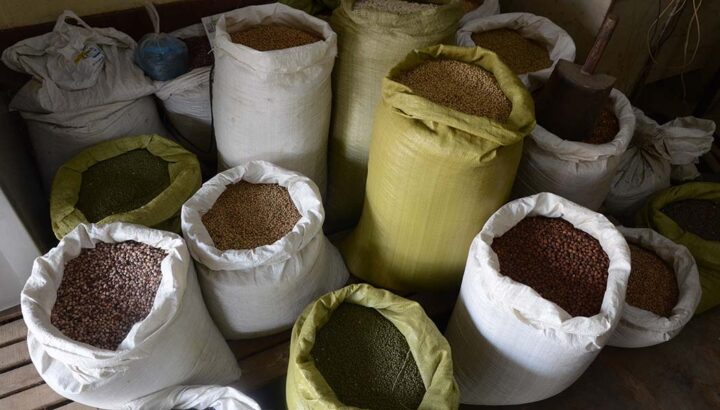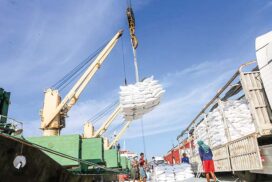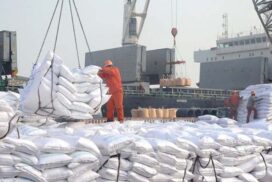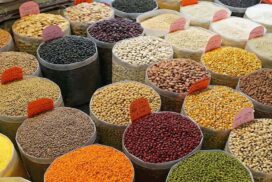Myanmar conveyed US$291.89 million worth of 354,218 tonnes of various pulses to foreign trade partners in the half of the current six-month mini-budget period (October 2021-March 2022), according to statistics released by the Ministry of Commerce.
During the October-December 2021 period, the country shipped US$273.56 million worth of 334,612 tonnes of pulses and beans to foreign markets through the sea route, and $18.3 million-valued 19,605 tonnes were sent to the neighbouring countries through land borders.
Myanmar beans and pulses market is expected to grow on the back of the prospective buyer India, the bean traders said.
India is the primary buyer of Myanmar beans, especially black beans, green grams and pigeon peas. Besides India, Myanmar’s beans are purchased by Bangladesh, Pakistan, Nepal, UAE, Malaysia, Indonesia, China (Taipei), Japan, and European countries. But, the volume of demand by those countries is small, according to the domestic beans market.
India’s Ministry of Agriculture and Farmers Welfare approved to import of not only black gram but also other pulses from Myanmar, with relaxations of conditions regarding clearance consignment up to 30 December 2021.
The prices of beans are positively related to the exchange rate. Last September, the bean price reached an exorbitant high tracking the Kyat weakening in the local forex market.
The price of black gram hit an all-time high of K2 million per tonne on 29 September following Kyat weakening against the US dollar. At present, the exchange rate of a US dollar is around K2,000. The price of black beans (Fair Average Quality) stands at K1.38 million per tonne. Similarly, the price of pigeon peas rises slightly to K1.365 million per tonne.
More than two million tonnes of various pulses and beans were delivered to foreign markets in the previous financial year 2020-2021 (October-September), with an estimated value of US$1.57 billion, the Commerce Ministry’s data indicated.
At present, the demand for green gram slips due to border trade restrictions amid the COVID-19, with an estimated value of around K125,000 per three-basket bag.
Myanmar’s agriculture sector is the backbone of the country’s economy and it contributes to over 30 per cent of Gross Domestic Products. The country primarily cultivates paddy, corn, cotton, sugarcane, various pulses and beans. Its second-largest production is the pulses an d beans, counting for 33 per cent of agro products and covering 20 per cent of growing acres. Among them, black beans, pigeon peas and green grams constitute 72 per cent of bean acreage. Other beans, including peanut, chickpea, soybean, black-eyed beans, butter bean and rice bean are also grown in the country. — KK/GNLM
Myanmar ships over 354,000 tonnes of various pulses in past 3 months (Oct-Dec)
- January 14, 2022
- 646














